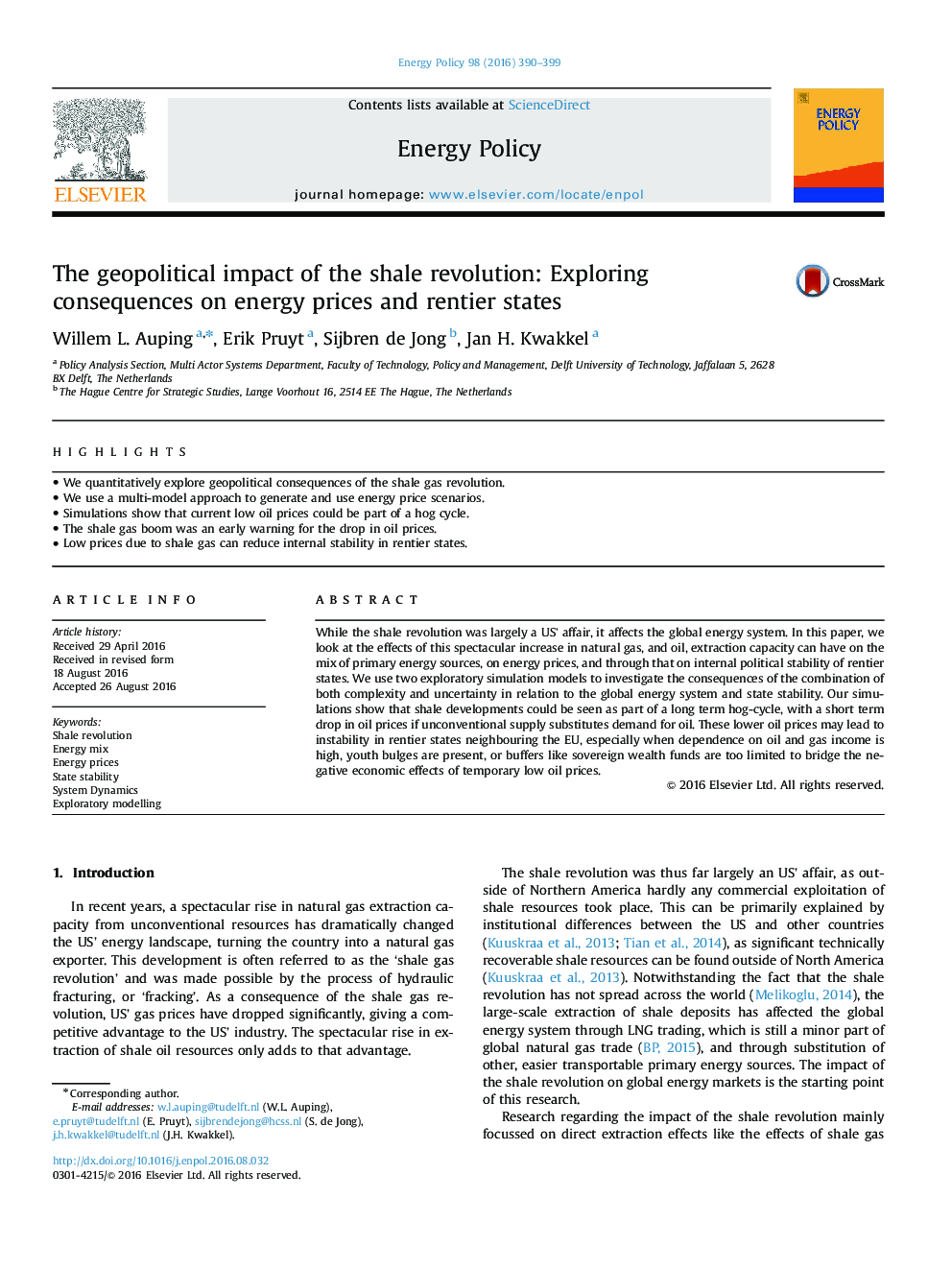| Article ID | Journal | Published Year | Pages | File Type |
|---|---|---|---|---|
| 7398320 | Energy Policy | 2016 | 10 Pages |
Abstract
While the shale revolution was largely a US' affair, it affects the global energy system. In this paper, we look at the effects of this spectacular increase in natural gas, and oil, extraction capacity can have on the mix of primary energy sources, on energy prices, and through that on internal political stability of rentier states. We use two exploratory simulation models to investigate the consequences of the combination of both complexity and uncertainty in relation to the global energy system and state stability. Our simulations show that shale developments could be seen as part of a long term hog-cycle, with a short term drop in oil prices if unconventional supply substitutes demand for oil. These lower oil prices may lead to instability in rentier states neighbouring the EU, especially when dependence on oil and gas income is high, youth bulges are present, or buffers like sovereign wealth funds are too limited to bridge the negative economic effects of temporary low oil prices.
Related Topics
Physical Sciences and Engineering
Energy
Energy Engineering and Power Technology
Authors
Willem L. Auping, Erik Pruyt, Sijbren de Jong, Jan H. Kwakkel,
